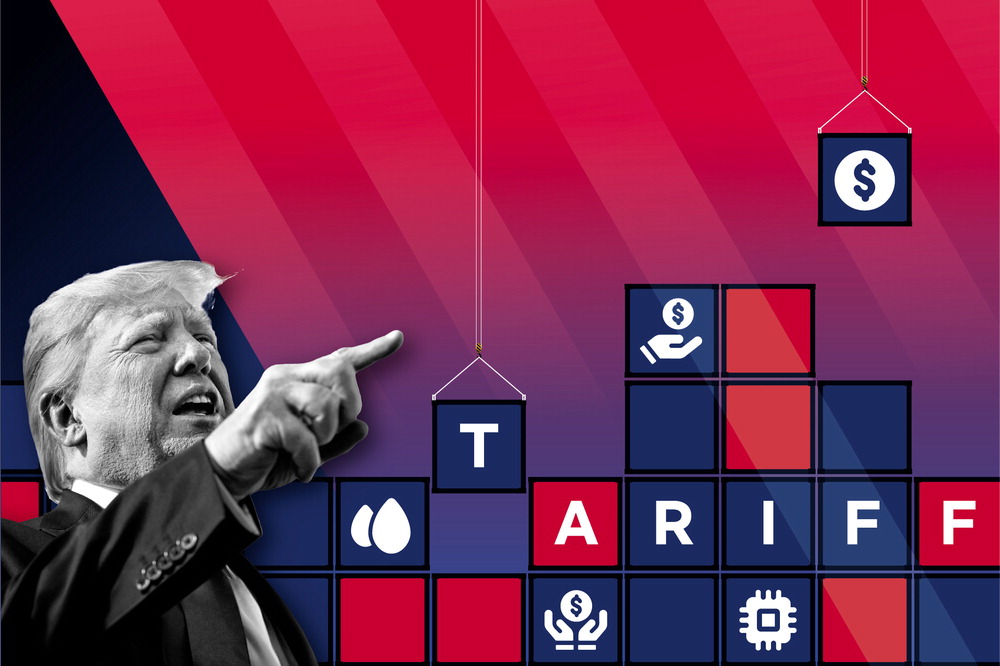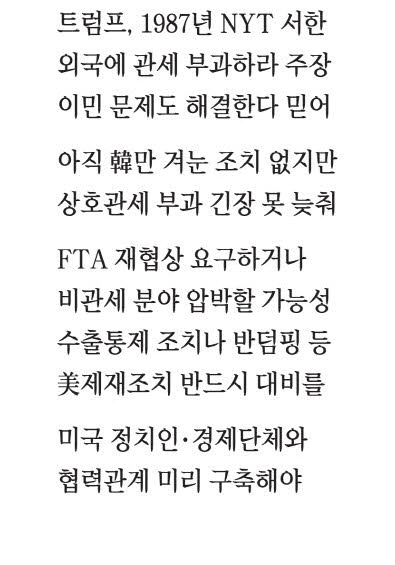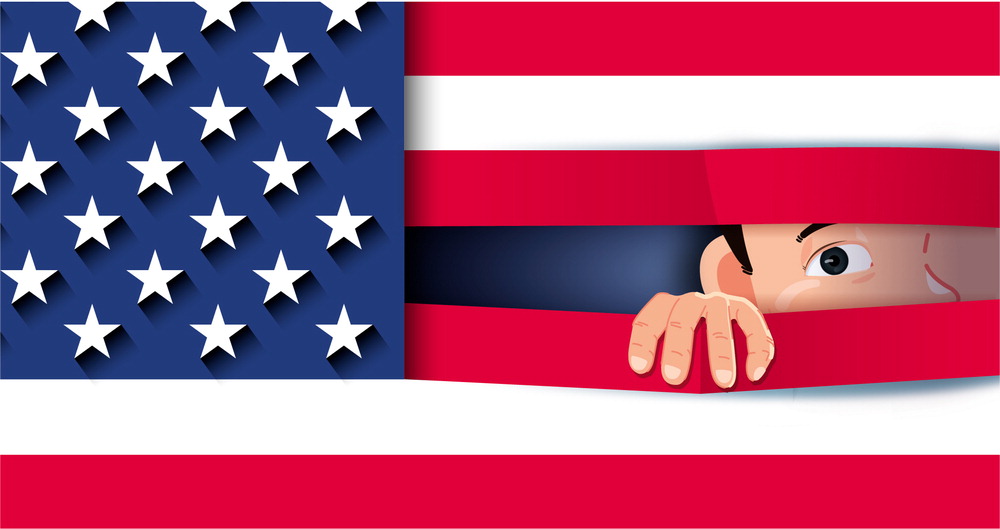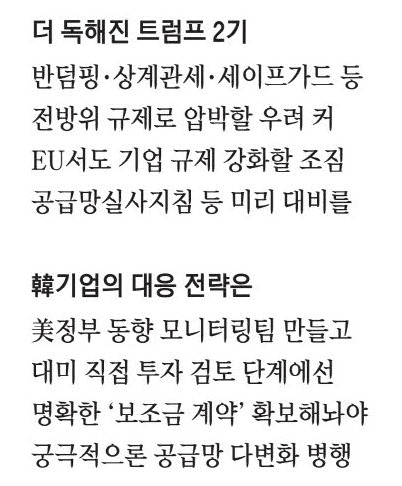
The global economy is fluctuating day by day in accordance with Donald Trump's U.S. government's tariff policy. How should companies devise strategies to respond to the Trump 2.0 era, which shows complex functions by country and industry.
Mail Business held a briefing session with the Korea International Trade Association, the U.S. trade law firm Pillsbury, and the Ministry of Trade, Industry and Energy to hear the first part of the strategy with experts from the YOON & YANG LLC Trade Industry Team, who are conducting a number of trade advice. Below is a question and answer.

▷Adviser to the final sentence = President Trump's attachment to tariffs goes back to an open letter published at his own expense in the New York Times (NYT) in 1987. At the time, he insisted, "Stop protecting wealthy foreign countries with Americans' taxes and impose taxes (tariffs) on them." This is his old tenet. Since taking office, he has implemented various tariff policies. Examples include universal tariffs, retaliatory tariffs on Canada and Mexico, and additional tariffs on China. On the 12th, 25% tariffs were imposed on steel, aluminum and derivatives in accordance with Article 232 (National Security) of the Trade Expansion Act 1962.
For President Trump, tariffs are a universal solution to revive the domestic manufacturing industry, attract foreign investment, return to the mainland (reshoring) of foreign U.S. companies, fill the tax gap caused by tax cuts, and resolve the trade deficit. More importantly, he also uses the imposition of tariffs as a means of achieving political goals, such as border control. Although there was criticism and action in the initial implementation, his tariff policy is not expected to fizzle out due to opposition from the international community.
-How do you see the impact of Trump's tariff policy on Korea.
▷ Representative lawyer Kim Kwon-hoe = There are no measures specifically aimed at Korea yet, but the impact of the U.S. imposition of universal and mutual tariffs is inevitable. The U.S. has already imposed 25% tariffs on steel and aluminum, and as a result, Korea will compete with Canada, Mexico, Brazil, and Japan under the same conditions. The presentation of our flagship export, automobiles, is scheduled for April 2.
South Korea ranked eighth in the trade surplus with the U.S. last year ($55.7 billion), so thorough preparations are needed. In the future, tariffs are expected to continue for each sector, including semiconductors and pharmaceuticals.
Meanwhile, the Trump administration is uncertain about subsidies promised to Korean semiconductor, battery, and electric vehicle companies, even though they violate the principle of estoppel. Companies considering investing in the U.S. to avoid imposing tariffs need to devise double and triple legal mechanisms to ensure the implementation of incentives proposed by the U.S. federal and state governments.
Last month, Hwawoo held a briefing session on the U.S. trade restrictions and Korean companies' responses with the Korea International Trade Association and Pillsbury, a law firm specializing in U.S. trade, and the Ministry of Industry. It is also conducting consulting work on companies that export steel, aluminum, and derivatives to the United States.

-In a joint speech to the U.S. Congress and the House of Representatives on the 4th, President Trump said, "South Korea is imposing tariffs four times higher on the United States."
▷ Attorney Chung Dong-won = President Trump's remarks are not true, as our government immediately pointed out. South Korea imports most U.S. products with zero tariffs through the Free Trade Agreement (FTA), and the effective tariff rate on imports from the U.S. was about 0.79 percent as of last year.
What President Trump mentioned was the most favored country treatment (MFN) tariff, and Korea's MFN implementation tax rate was 13.4% as of last year. This is about four times the US implementation tax rate (3.3%), but it is a different concept from the Korea-US FTA agreement tax rate because it is applied to World Trade Organization (WTO) member states without bilateral agreements.
This appears to be a media play to gain the upper hand in preparation for future negotiations. The U.S. side is well aware that it is not true, so it should respond calmly and firmly. This will continue to happen from time to time.
-Some say there is a possibility of renegotiation of the Korea-U.S. FTA.
▷Counselor Choi = According to the 2025 trade policy agenda drawn up by the U.S. Trade Representative (USTR), he said he would review existing trade agreements to strengthen the U.S. industrial base and prevent third countries from free rides on trade agreements in which the U.S. is a party. The U.S. should prepare for the possibility that the U.S. will demand renegotiation of the Korea-U.S. FTA.
The expected U.S. requirements could include strengthening automobile origin recognition standards, easing quarantine-related measures (SPS) on agricultural products such as beef and soybeans, ensuring freedom to relocate data abroad and banning localization of computer facilities, including servers, exempting network fees, and opposing the introduction of platform laws.
The U.S. should identify and respond to the concerns of the U.S. in advance, and actively discover what we need to raise so that the "balance of interests" can be achieved.
-In addition to tariffs, what should we be wary of in the Korea-U.S. trade sector.
▷ Attorney Chung = In addition to tariffs, attention should be paid to non-tariff areas where the U.S. may become more aggressive. These include trade remedies such as anti-dumping and countervailing duties and export controls and sanctions at the geopolitical level.
The Trump administration recognizes that low-cost imports take away U.S. jobs, so it is likely to use anti-dumping and countervailing tariff measures as tools. On behalf of the South Korean government, Hua has successfully responded to countervailing duty investigations on U.S. steel products, and anti-dumping investigations on iron nails and aluminum extrudates have also resulted in favorable results on behalf of Korean companies. This success was possible based on the selection of appropriate U.S. law firms, establishing relationships with major politicians, and finding consumer associations in the U.S. that are friendly to our companies.
▷ Representative Kim = The international strategic material control system is quite professional and includes four major export control systems, UN Security Council sanctions, and bilateral sanctions by the United States and the European Union (EU). What Korean companies should pay special attention to is sanctions against Russia and Iran by the U.S. and EU, and the U.S. control of exports of advanced semiconductors to China. Exports to Russia or Iran are determined through consultation with relevant government agencies in accordance with the strategic material import and export notification, but some companies we consulted have experienced problems due to misclassification of the item classification code (HS code) or mistakes in the decision-making process.
Both the Joe Biden and Trump administrations have comprehensively implemented regulations on semiconductor exports to China, a bipartisan agreement. Companies dealing with sanctioned countries should establish an internal compliance system with the help of experts.
As for the possibility of lifting Russian sanctions, U.S.-led ceasefire talks have begun, but there is still a long way to go before lifting them. Companies must continue to comply with the current sanctions.

-President Trump is known to be negative about the Inflation Reduction Act (IRA) pushed by the Biden administration. What do you predict will be the direction of the policies introduced during the Biden administration.
▷ Lawyer Lee Kwang-wook = Since the introduction of IRA, Hyundai Motor has completed an electric vehicle plant in Georgia, and LG Chem is building a cathode material plant in Tennessee. However, uncertainty is growing among companies that have already invested as President Trump ordered the suspension of related subsidies.
Such an executive order temporarily suspends the federal government's execution of funds, and the complete abolition of the IRA requires congressional consent. Hwawoo is providing advice so that domestic companies can receive subsidies in the U.S. as much as possible. But Trump is likely to scale back subsidies because he basically believes that tariff pressures will naturally prompt foreign companies to invest in the U.S. The Semiconductor Support Act (Chips Act) is also in the same situation.
-In addition to the United States, the EU needs to be examined, so what about the EU regulatory environment.
▷Lee lawyer =EU is Korea's top three trading partners along with the U.S. and China. As a leader in ESG management (environmental, responsible, and transparent management), the EU has introduced new regulations such as the Carbon Border Adjustment System (CBAM), General Information Protection Regulations (GDPR), and Supply Chain Audit Guidelines (CSDDD).
There were predictions that this trend would change after President Trump's hostile remarks on climate change, but there are also predictions that the EU will tighten ESG regulations against the United States. Since the current stance of the EU is likely to be maintained and ESG management of global companies will continue, Korean companies should also manage according to the level of EU regulations.

-If there is anything you would like to ask our company.
▷Counselor Choi = The world has never faced the U.S. as it is today. More nerve-wracking than in the first period, ministers and Republican leadership acted as brakes at the time, but now they act as accelerators, making policy enforcement incomparably faster.
The WTO, a multilateral system, has long ceased to work, and bilateral FTAs are also losing power in the face of unilateral U.S. measures based on national security. Given Trump's pressure on Canada, it is hard to expect a premium for the Korea-U.S. alliance. Now we have to adapt to a new paradigm.
In addition to responding to individual issues, Korean companies should pay a lot of attention to geopolitical changes. South Korea, which is deeply connected to the international supply chain, may be greatly affected by the damage to the supply chain caused by regional disputes. In addition to the competition for hegemony between the U.S. and China, there are many issues that need to be carefully observed, such as the U.S.-Iran relationship, Saudi Arabia-Iran relations, and the Democratic Republic of the Congo conflict. In case of emergency, plan B should also be prepared in preparation for damage to the supply chain. Now is the time when diplomacy is needed at the corporate level as well.
▷ Representative lawyer Kim = It is necessary to secure strategic inventory of key components under Plan B, prepare alternative production and logistics routes, and prepare scenario planning for each crisis situation in advance. Building a global network and a deep understanding of local political, economic, and social conditions have become essential elements of corporate survival.
As a practical countermeasure that Korean companies can take, first, it is necessary to establish a dedicated organization that monitors the policy trends of the US government in real time. Second, it is important to gradually reduce dependence on the U.S. market by promoting export portfolio diversification strategies. Third, when considering direct investment in the U.S., it is necessary to secure legally binding subsidy contracts and approach state and federal incentives clearly. Fourth, in preparation for supply chain reorganization, strategies should be taken to diversify raw materials and parts procurement sources and secure alternative production bases.
-Usually, the environment is expected to be more complex, but what are the strengths of the Huawu Trade Industry Team.
▷ Lawyer Jeong = Hwawoo has abundant work experience on the topics discussed above. In particular, it boasts the best performance in Korea as the first domestic law firm to respond to the U.S. Department of Commerce's countervailing duty investigation. Recently, anti-dumping complaints have been filed on behalf of the domestic steel industry and the industrial robot industry to relieve damage to the domestic industry caused by the influx of low-cost imports.
The Huawu Trade Industry Team consists of top experts who have worked for a long time in WTO and FTA-related departments of the Ministry of Industry and Foreign Affairs, and the Trade Commission's anti-dumping and intellectual property infringement investigations. Based on these experiences, it provides various legal services in areas such as anti-dumping, countervailing tariffs, and safeguards in each country, resolving international trade disputes such as investor-state litigation (ISD), establishing global investment policies and tariffs, verifying origin, customs clearance, foreign exchange transactions, and trade technology barriers (TBT).
In particular, it has successfully represented domestic and foreign customers and governments in investigations by major foreign trade relief agencies such as the United States, China, Japan, and Turkey, as well as the Korea Trade Commission.
Based on the experience of collaborating with local overseas law firms in more than 50 countries, trade work in countries around the world can be supported. Based on its accumulated work experience, Hwawoo will provide the best legal services to help companies maintain their best competitiveness in a changing global trade environment.
[Reporter Lee Seungyoon]














